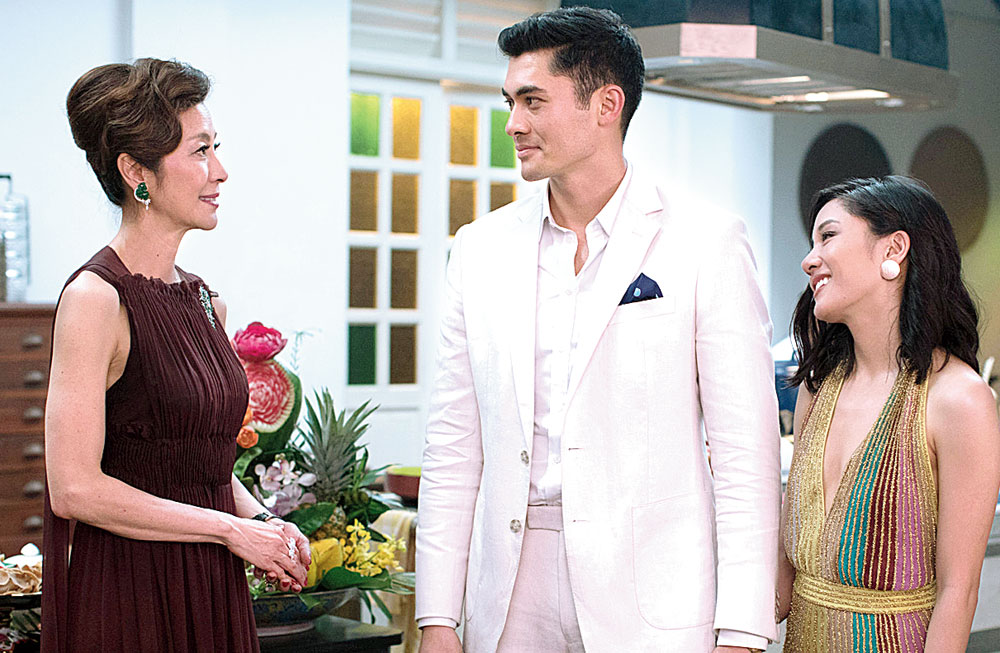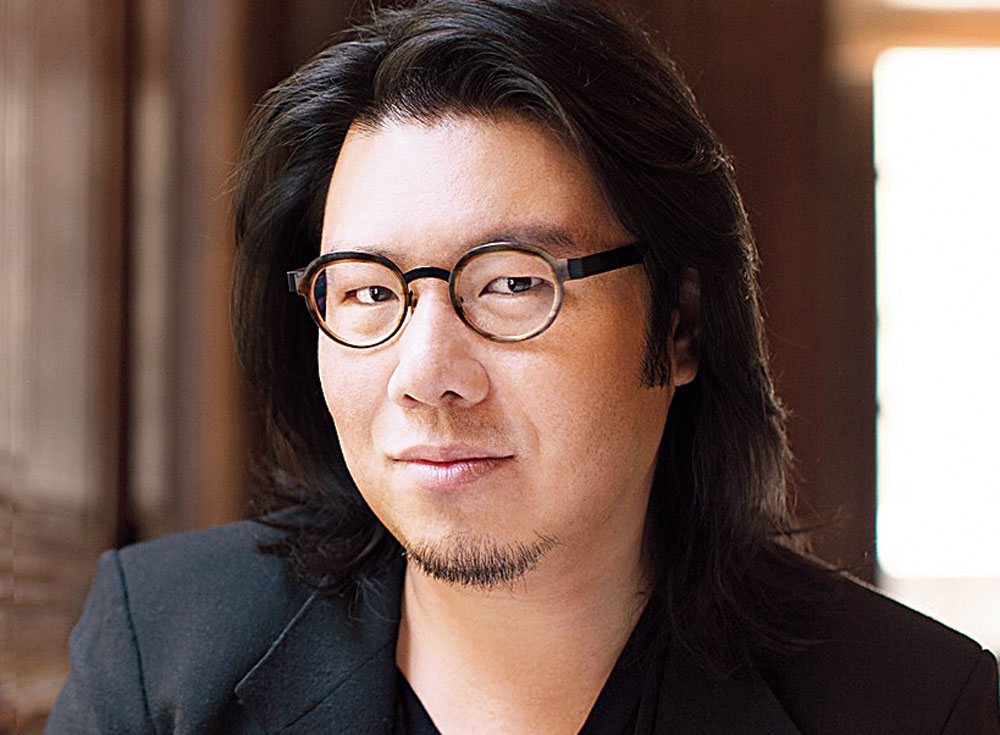There was controversy over the casting of Henry Golding, who is half white, to play Nick, the male romantic lead. Did that debate come up during the casting process?
It definitely came up in the room and was something we deliberated about for a very long time. We were hyper-conscious of what would happen and how people would respond. But at the end of the day we really felt that he really was the perfect Nick. We had to put aside our own issues to see that.
I understand the issue, and I’m glad it came up. But being from Singapore, which is such a multicultural society, and having so many cousins who are mixed race — and seeing their struggle as mixed-race Asians who aren’t fully accepted on either side — I really have a lot of empathy for that. How are they not Asian? How is Henry Golding, who has spent most of his life living in Asia, considered not Asian? Fifty years ago he wouldn’t be let into a lot of private clubs just based on the way he looks.
Over the past few months, have you seen a change in potential opportunities for Asian and Asian-American stories in Hollywood?
Absolutely. There’s tremendous interest now in projects that I’m developing going forward. I see it also with the cast: All of them have different pots that are boiling. They’re being offered different roles and possibilities. We’re seeing how all these actors are in demand in a whole new way, and in projects that aren’t just Asian based. The climate’s already changing.
Now that you’ve broken the bamboo ceiling, what kind of stories are you interested in telling?
Crazy poor Asians. Or just crazy average Asians. I’ve written three books about the one per cent. Now, it’s all about exploring this wide spectrum and showing other facets of Asians around the world. I want to show how they can be as cool as the crazy rich Asians, if not more.
I’m also developing a TV series with Amazon. It’s going to be set in Hong Kong, and it’s about the most powerful and ruthless family there. It’s going to be very different in tone and subject matter.
[Spoilers ahead] The post-credits scene of the film sets up a new potential love interest for the spurned Astrid (Gemma Chan). Is the scene a harbinger of a sequel?
I really hope so. A few of the actors and me, we snuck into one of the screenings in Union Square and were watching as the credits rolled. The minute that scene played, people were screaming. It was hilarious to watch.
We are definitely trying to set things up for a sequel. But it all depends on this movie performing well and having legs. This is not up to us.

Michelle Yeoh, Henry Golding and Constance Wu in Crazy Rich Asians Photo: The New York Times News Service
With its lavish banquets, helicopter escapes and sweeping descriptions of Singapore’s lush coast, Kevin Kwan’s novel Crazy Rich Asians practically begs to be turned into a film. But when Kwan wrote the book, which was published in 2013, he never thought his set pieces would spring to life. “I told a story that I think was very cinematic. Did I ever dare to dream it would ever happen? Absolutely not,” he said in a phone interview with The New York Times. “I didn’t think I would even get it published to begin with.”
Not only did the book get published and tops bestseller lists, but the ensuing film has stormed to No. 1 at the box office, buoyed by warm reviews and aggressive theatre-renting campaigns. The film has carried the weight of being the first Hollywood film with an all-Asian cast and a contemporary story since The Joy Luck Club in 1993. And even though the movie has been out for less than a week, Kwan says it has already increased the appetite for different kinds of stories in Hollywood.
What was the best reaction from someone who has seen the movie so far?
I was in Philadelphia, and there were two white dudes in their 50s who went to a screening. One of the guys admitted: “I haven’t cried in a movie in the longest time — but I cried.” And his friend was like, “Yeah, I cried too.”
This was not the target demographic. But it’s funny to see them admitting to this and being so surprised by their own reaction. It’s great to hear that, because that’s what we believed from the beginning: that this story transcends race.
The story explores the world of the uber-rich in Singapore, where you grew up. What was the most obscene show of wealth you saw as a child?
This made it into Crazy Rich Asians: There was this family that had recently suffered a personal tragedy. A Christian counsellor had come over and was destroying everything that was Chinese or had any dragons or idols. I was 10 years old, and remember watching from the sidelines in this enormous mansion as they were tipping vases to the floor. The maids are weeping: They see fortunes they can’t even make in their whole lifetime being destroyed right in front of them — and they have to literally sweep it up. I can’t make this stuff up.
The book is a satire of this culture of excess, but Hollywood loves to glorify wealth. Were you worried that critique would be lost in translation?
Jon [Chu, the film’s director] and I had many many long talks over this. I knew and understood his vision: that even though there are decadent scenes, you look beyond that. The story at the heart of it is about a family, a couple, a mother and a son. And there’s where the true crazy richness lies in the story.
While other authors option their books for thousands of dollars, you optioned the book to the production companies Color Force and Ivanhoe for $1. What did you do with that dollar?
I don’t think I actually got that dollar, quite frankly. Basically, I was trying to make myself as amenable to the deal as possible. I didn’t want things to be held up by money. I wanted the money to be spent hiring a great screenwriter — to really adapt my book rather than to pay me some stupid option fee. And it gave me a partnership stake in the whole process. So it was worth every dollar — it was worth that dollar (laughs).











